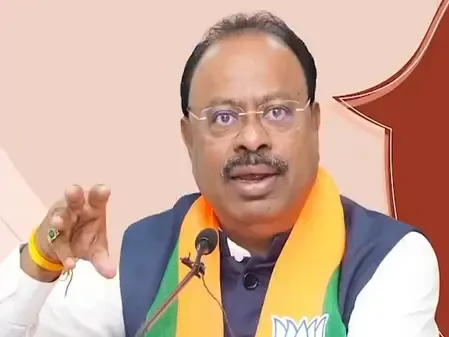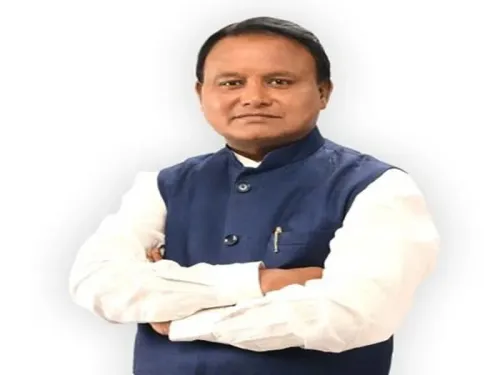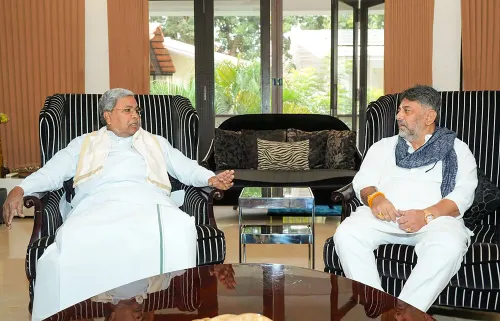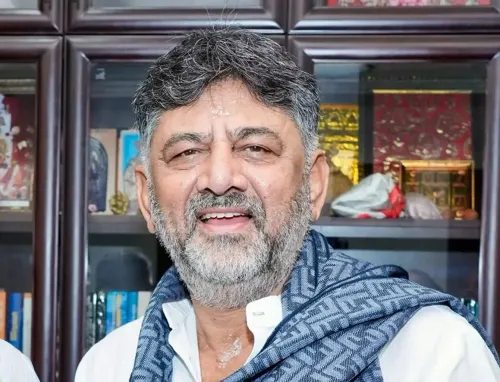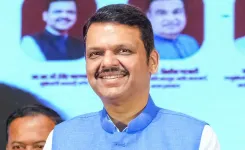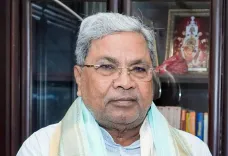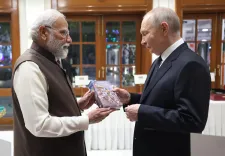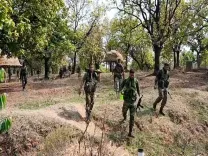Did PM Modi and Chinese President Xi Jinping Agree to Enhance People-to-People Exchanges?
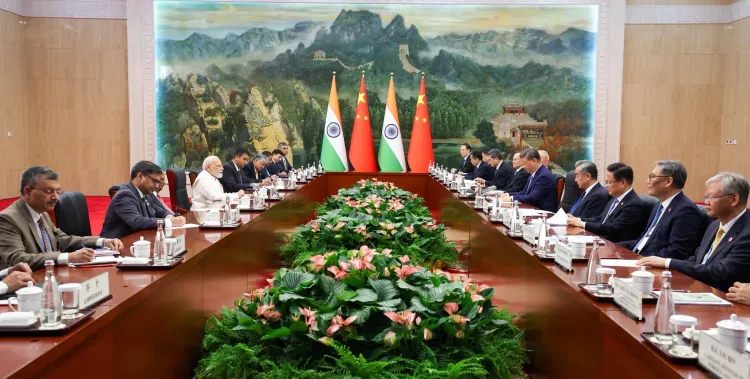
Synopsis
Key Takeaways
- Commitment to peace and tranquility along the borders is essential for India-China relations.
- People-to-people exchanges are crucial for fostering mutual understanding.
- The two leaders recognized the importance of economic collaboration for global stability.
- Direct flights and visa facilitation were highlighted as important initiatives.
- A fair resolution of the boundary question is necessary for long-term cooperation.
Tianjin, Aug 31 (NationPress) Prime Minister Narendra Modi convened a bilateral discussion with Chinese President Xi Jinping during the Shanghai Cooperation Organisation (SCO) Summit in Tianjin on Sunday, where both leaders committed to enhancing people-to-people exchanges.
In their dialogue, the two leaders assessed the evolution of India-China relations since their last meeting in Kazan, Russia, in 2024. They reiterated their stance as development partners rather than competitors, emphasizing that their differences should not escalate into disputes.
According to a statement released by the Ministry of External Affairs (MEA), spokesperson Randhir Jaiswal indicated, "PM Narendra Modi met with President Xi Jinping on the sidelines of the SCO Summit in Tianjin, China. The leaders evaluated the advancement of India-China bilateral relations since their meeting in Kazan last year. Stable and friendly relations between India and China are crucial for our economic progress, for reformed multilateralism, and for a multipolar world and Asia. They supported the efforts of the two Special Representatives on the boundary issue and agreed to further encourage people-to-people exchanges. Predictable economic and trade collaboration between India and China contributes to global economic stability.
PM Modi emphasized the significance of maintaining peace and tranquility in border regions to ensure the ongoing development of their bilateral relations, as per the MEA's press release. The leaders acknowledged the necessity of bolstering people-to-people connections through facilitating direct flights and visa processes, leveraging the resumption of the Kailash Manasarovar Yatra and tourist visas.
The MEA also noted, "The two leaders expressed satisfaction regarding the successful disengagement last year and the maintenance of peace and tranquility along the border areas since then. They pledged commitment to a fair, reasonable, and mutually acceptable resolution of the boundary issue, grounded in the political context of their overall bilateral relations and the long-term interests of both peoples. They recognized the significant decisions made by the two Special Representatives during their discussions earlier this month, agreeing to continue supporting their initiatives.
On the economic and trade front, PM Modi and Xi Jinping acknowledged the contributions of their economies to global trade stabilization. They stressed the importance of progressing from a political and strategic standpoint to enhance bilateral trade and investment relations while reducing trade deficits.
The MEA further remarked, "The Prime Minister noted that both India and China seek strategic autonomy, and their relationship should not be viewed through the lens of a third country. The leaders found it essential to expand common ground on bilateral, regional, and global issues, including terrorism and equitable trade on multilateral platforms.
PM Modi extended his support for China's Presidency of the SCO and the Summit held in Tianjin. He also invited President Xi to the BRICS Summit that India will host in 2026. Xi Jinping expressed gratitude for the invitation and assured China's support for India's BRICS Presidency.
The previous interaction between the two leaders occurred during the BRICS Summit in Kazan, Russia, in 2024. Progress in dialogue was achieved after both parties reached an agreement on patrol protocols along the 3,500-km-long Line of Actual Control (LAC), successfully easing a four-year border standoff.


